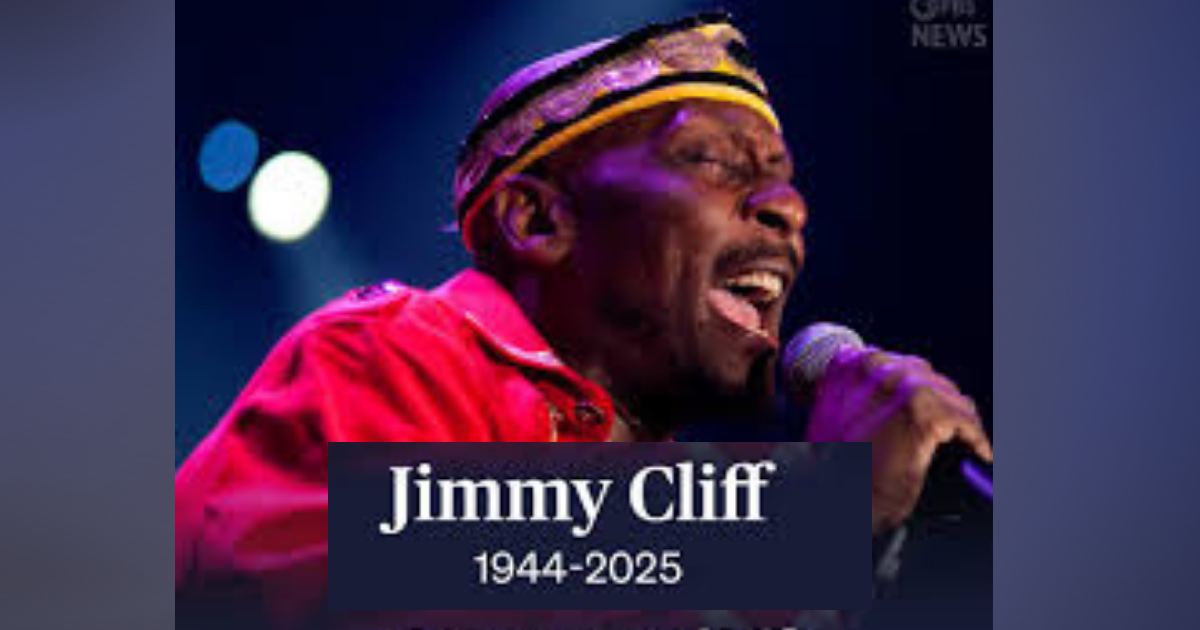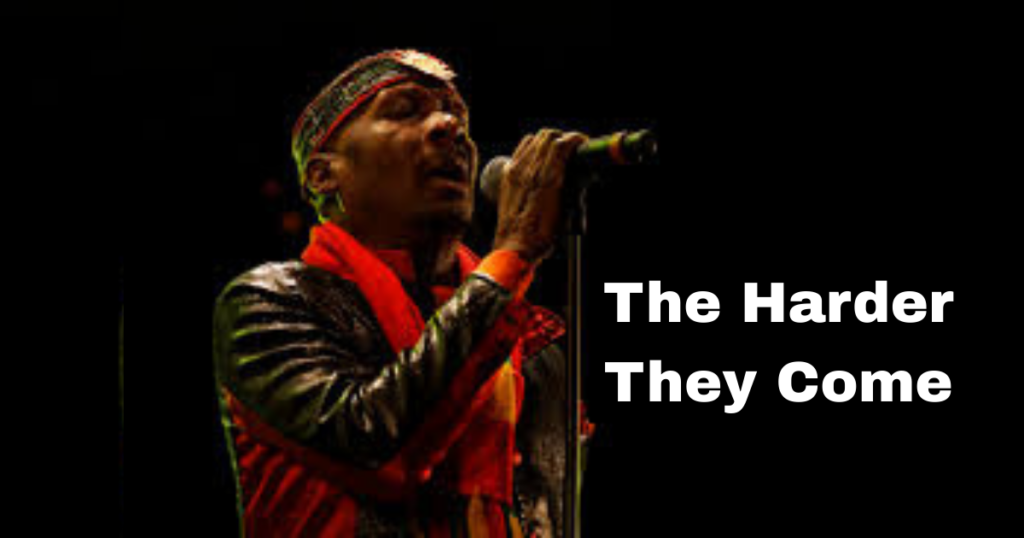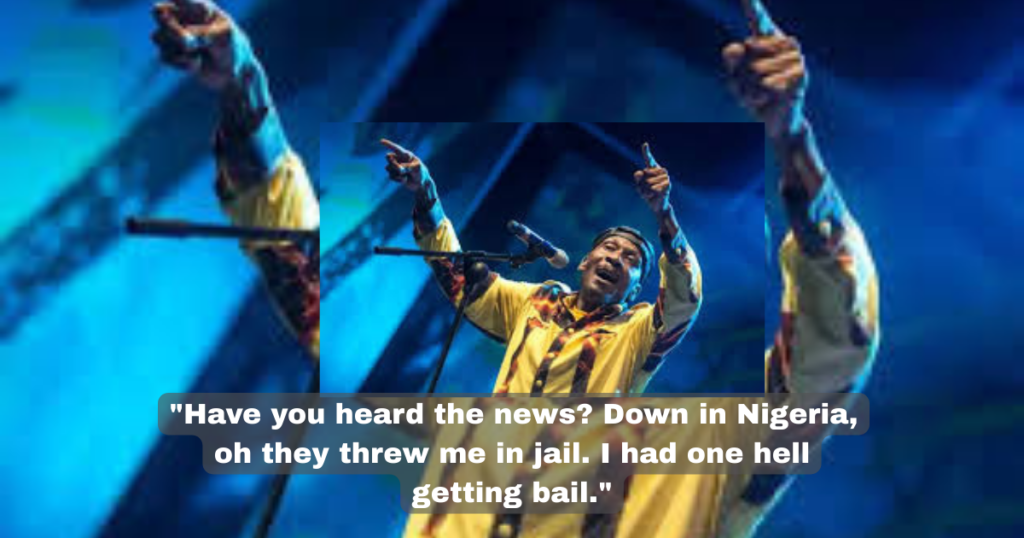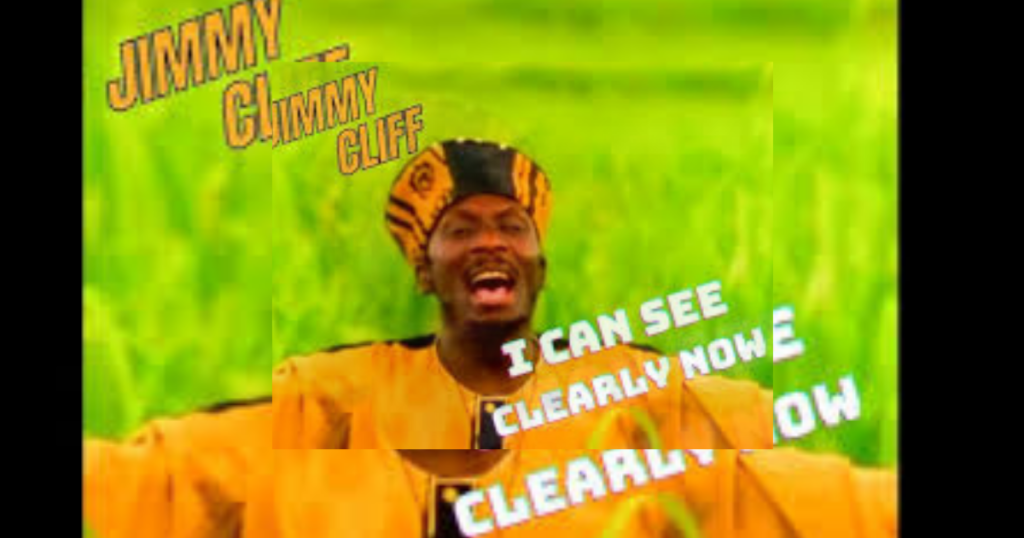The world of music paused on November 24, 2025, with the news of the passing of James Chambers, universally known as Jimmy Cliff, at the age of 81.
His death, attributed to a seizure followed by pneumonia, marks the end of an era for a true cultural giant whose influence on Jamaican music and its global propagation is immeasurable.
While the name Bob Marley often dominates discussions of reggae’s history, it was Jimmy Cliff who first carried the genre’s banner across the “many rivers to cross,” establishing himself as an international star and a foundational pillar of the sound long before the Wailers achieved worldwide fame.
Cliff’s legacy is not merely one of hit songs; it is a story of a pioneer, an activist, and an actor who used every facet of his art to champion the marginalized and spread a message of hope and social consciousness.
His journey from a small, electricity-less village in Jamaica to the Rock & Roll Hall of Fame is a testament to the power of talent, ambition, and the universal appeal of reggae music.
What is Jimmy Cliff Famous For? The Pioneer Who Took Reggae Global
Jimmy Cliff is famous for a constellation of achievements that collectively cemented his status as a global music icon.
His fame rests on three primary pillars: his pioneering role in bringing reggae to the international stage, his starring role in the seminal film The Harder They Come, and his catalog of enduring, socially conscious hit songs.
The Architect of Global Reggae
Before the genre was a global phenomenon, Cliff was its most potent international ambassador. He was already a towering figure in Jamaica, scoring local hits like “Hurricane Hattie” and “Miss Jamaica” in the early 1960s. His move to London in 1965 and subsequent signing with Island Records founder Chris Blackwell positioned him perfectly to introduce the Jamaican sound to a wider audience.
His 1969 self-titled album, Jimmy Cliff, was a critical and commercial success that contained the international hit “Wonderful World, Beautiful People.” This song, along with the powerful anti-war anthem “Vietnam,” earned him global acclaim and even prompted Bob Dylan to reportedly call “Vietnam” the greatest protest song ever written.
Cliff’s early international success provided the blueprint and the momentum that would later be capitalized upon by other Jamaican artists, including his protégé, Bob Marley.
The Harder They Come: A Cinematic and Musical Revolution
Cliff’s career reached its zenith with the 1972 film The Harder They Come. Starring as Ivanhoe “Ivan” Martin, a young man who moves to Kingston to pursue a music career but turns to a life of crime, Cliff delivered a performance that was both raw and captivating.
The film was a cultural phenomenon, introducing global audiences to the vibrant, yet often harsh, realities of urban Jamaica.
More than the film itself, the accompanying soundtrack, featuring Cliff’s title track “The Harder They Come” and the soul-stirring “Many Rivers to Cross,” became an international sensation.
Also Read: River as a Metaphor for Life
It was the definitive moment that propelled reggae from a niche genre into a worldwide musical force. The film’s success sparked a global fascination with Jamaican culture and music, making Cliff a household name and forever linking him to the genre’s international breakthrough.
A Catalog of Enduring Hits
Beyond his foundational work, Cliff is celebrated for a deep catalog of songs that blend ska, rocksteady, reggae, and soul. His music was characterized by a profound sense of social justice and uplifting optimism.
Songs like “You Can Get It If You Really Want” became anthems of self-determination, while “Many Rivers to Cross” remains a timeless ballad of perseverance in the face of adversity.
Also Read: Self-Actualization: Unlocking Your True Self
His later career saw a resurgence in mainstream popularity with his cover of Johnny Nash’s “I Can See Clearly Now,” recorded for the 1993 film Cool Runnings.
This track became his highest-charting single on the Billboard Hot 100, peaking at No. 18, and introduced his music to a new generation, further solidifying his reputation as a versatile and enduring artist.
The Harder They Come: A Deep Dive into Cliff’s Magnum Opus
The impact of The Harder They Come cannot be overstated. It was a cultural Trojan horse that smuggled the raw, authentic sound of reggae into the Western world.
The film’s narrative, loosely based on the life of Jamaican outlaw Rhyging, resonated deeply with audiences who saw in Ivan’s struggle a universal fight against systemic oppression and corruption.
Cliff’s portrayal of Ivan was magnetic. He embodied the spirit of the defiant underdog, a figure who, despite his flaws, refused to be crushed by the system. The film’s ending, where Ivan confronts his fate with a defiant “The Harder They Come,” became an iconic moment in cinema history.
The soundtrack, however, was the true game-changer. It was a curated masterpiece that showcased the best of Jamaican music, featuring tracks from The Maytals (“Pressure Drop”), Desmond Dekker (“007 (Shanty Town)”), and Cliff himself.
The album’s induction into the Library of Congress’ National Recording Registry in 2020 speaks to its lasting cultural and historical significance. It was the moment the world realized that reggae was more than just island music; it was a powerful, politically charged, and deeply soulful art form.
What is Jimmy Cliff’s Biggest Hit?
Determining Jimmy Cliff’s “biggest hit” depends on the metric used critical acclaim, cultural impact, or commercial success.
| Metric | Song Title | Peak Achievement | Significance |
|---|---|---|---|
| Commercial Success (US) | “I Can See Clearly Now” (1993) | No. 18 on Billboard Hot 100 | His highest-charting single in the United States, recorded for the film Cool Runnings. |
| Cultural Impact | “The Harder They Come” (1972) | Title track of the film that launched reggae globally. | The song and film are inseparable from reggae’s international breakthrough. |
| Critical Acclaim | “Many Rivers to Cross” (1969) | Covered by numerous artists (Cher, Annie Lennox, UB40) and praised for its emotional depth. | A timeless ballad that showcases Cliff’s vocal and songwriting prowess. |
| Early International Breakthrough | “Wonderful World, Beautiful People” (1969) | Top 10 on the UK Pop Chart. | Established Cliff as an international star and a pioneer of the genre outside Jamaica. |
While “I Can See Clearly Now” was his biggest commercial success in the United States, his most culturally significant and enduring hit is arguably “The Harder They Come.”
The song is the rallying cry of the film that changed the course of music history, a self-penned anthem of defiance that perfectly encapsulates the spirit of his art.
The African Connection: What Happened to Jimmy Cliff in Nigeria?
Jimmy Cliff’s connection to Africa was profound, and his first visit to the continent in 1974 was marked by a dramatic and unexpected incident. The question, “What happened to Jimmy Cliff in Nigeria?” refers to his brief detention in Lagos.
In 1974, Cliff embarked on a tour of Africa, a continent he felt a deep spiritual and cultural connection to, later converting to Islam and adopting the name El Hadj.
However, his visit to Nigeria was marred by a contractual dispute with a local promoter. The promoter, alleging a breach of contract, filed a civil suit against the artist. This legal entanglement led to Cliff’s arrest and subsequent detention in a Lagos jail.
The incident, though brief lasting only a few days was a jarring experience for the international star. It was a moment of profound personal reflection that Cliff later immortalized in his 1976 song, “The News” (also known as “Have You Heard the News?”).
In the song, he sings:
“Have you heard the news? Down in Nigeria, oh they threw me in jail. I had one hell getting bail.”
The detention did not diminish his love for the continent. In fact, his commitment to Africa was further demonstrated by his historic concert in Soweto, South Africa, during the height of the apartheid era.
This performance was a powerful act of solidarity and inspired a young Lucky Dube, who would go on to become South Africa’s biggest reggae star. Cliff’s willingness to perform in a segregated nation, using his music as a tool for liberation, underscores his role as a global activist.
How Rich is Jimmy Cliff? Exploring His Net Worth and Financial Legacy
The question, “How rich is Jimmy Cliff?” often arises when discussing the financial success of a long and storied career. While precise figures are always subject to variation and estimation, Jimmy Cliff’s net worth at the time of his passing was estimated to be in the range of $5 million to $18 million.
This wide range reflects the complexity of calculating the wealth of a musician whose career spanned over six decades and included income from diverse sources:
- Music Royalties: Decades of album sales, streaming revenue, and publishing rights from his extensive catalog of original songs and popular covers.
- Film and Soundtrack Income: Significant earnings from the enduring success of The Harder They Come and the massive commercial hit of “I Can See Clearly Now” from Cool Runnings.
- Touring and Concerts: A lifetime of worldwide touring, which remained a major source of income throughout his later years.
- Acting Roles: Income from his roles in films like The Harder They Come and other projects.
It is important to note that while his net worth is substantial, it does not fully capture his cultural wealth. His financial legacy is a reflection of his enduring appeal, but his true richness lies in the profound impact he had on music, film, and social consciousness across the globe.
Read Also: The Million-Dollar Mindset: How Personal Development Impacts Financial Success
The Enduring Legacy of a True Icon
Jimmy Cliff’s passing leaves a void in the world of music, but his legacy is one that will continue to inspire. He was a man who saw the world’s struggles and responded not with despair, but with a powerful, rhythmic optimism.
His influence is evident in the tributes that poured in from across the music world. The family of Bob Marley acknowledged Cliff as an “instrumental figure” in Marley’s own rise, noting that it was Cliff who brought the young Marley to producer Leslie Kong to record his first singles.
Artists like Sean Paul, Vybz Kartel, and Shaggy all hailed him as a “true icon” and a “legendary Jamaican.”
Prime Minister Andrew Holness of Jamaica perfectly summarized his contribution, calling him “a true cultural giant whose music carried the heart of our nation to the world.”
From the dirt roads of Somerton to the stages of the world, Jimmy Cliff’s life was a testament to the message embedded in his music: that with perseverance, social awareness, and an unwavering belief in a better tomorrow, “You Can Get It If You Really Want.”
He crossed his many rivers, and in doing so, he showed the world the way. His music, a beautiful tapestry of rhythm and message, will ensure that his light and legacy live on forever.





